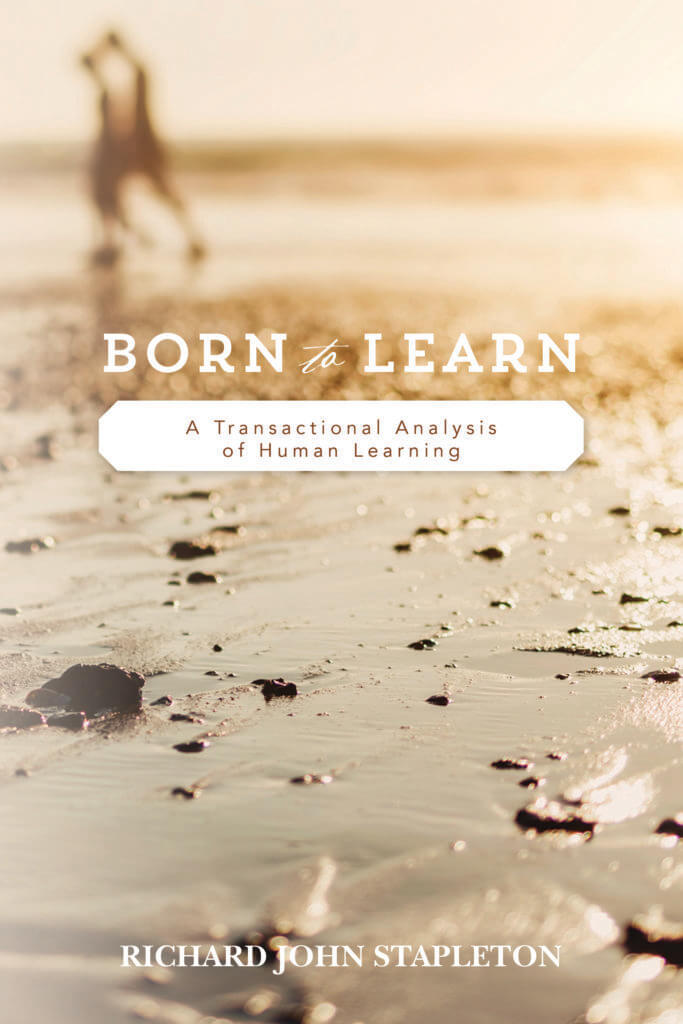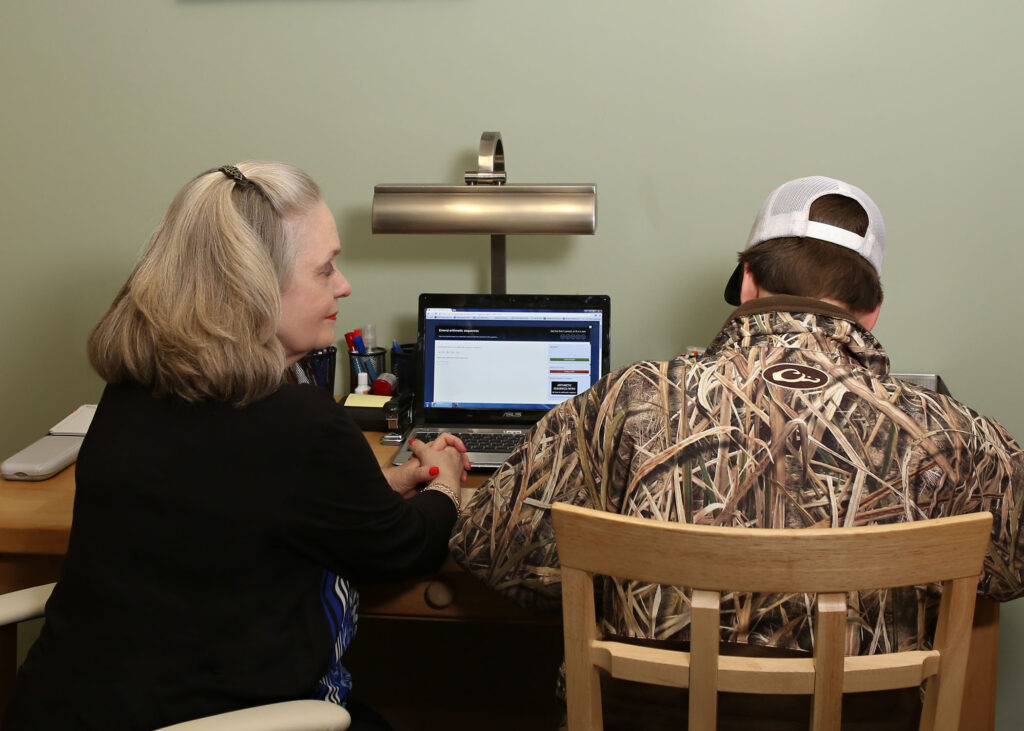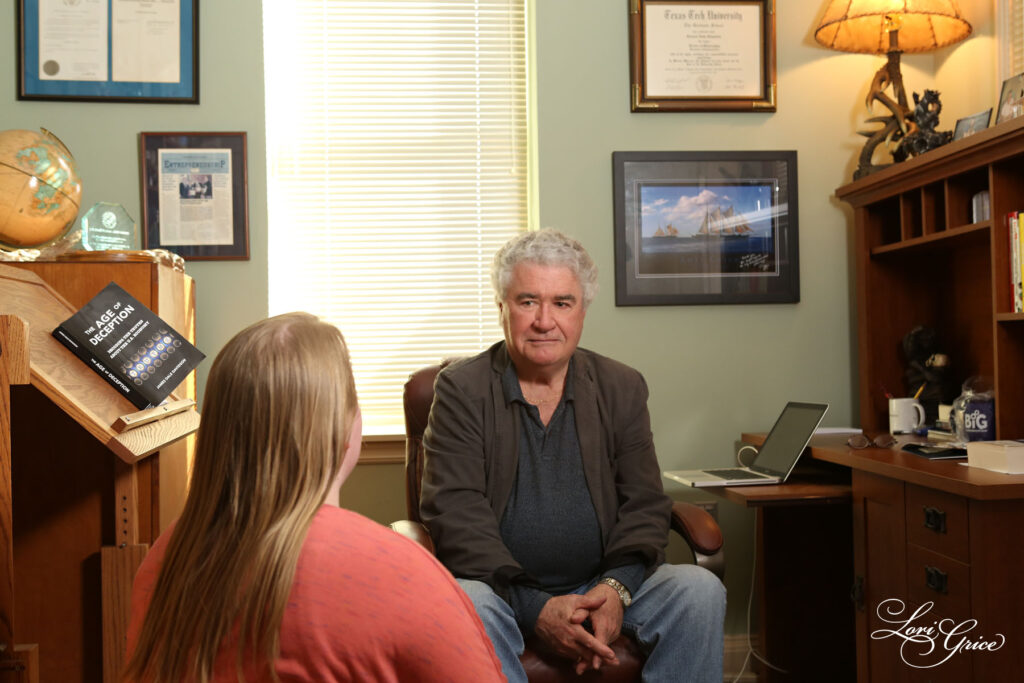
This picture was taken in 2005. In the interests of full disclosure here’s a video created by the Statesboro Herald showing what I look like now (February 19, 2020) in context with the members of the Southeast Georgia Scottish Heritage Society carrying in the haggis at our 17th annual Robert Burns Supper at the Forrest Heights Country Club (https://statesboroherald.cdn-anvilcms.net/media/media/2020/02/15/media-6478/ren-6682/1351620000001-100020/SHR_21420.mp4Ann).
I start off this family scripting article with a bit of transactional analysis theory explaining how I view the process of family formation and functioning, having become a certified transactional analyst. If it bores you skip down about ten paragraphs to get into the meat of the what, when, and where’s of my family history that actually happened. If the TA theory interests you read my book Born to Learn: A Transactional Analysis of Human Learning that is described in the Effective Learning Publications page posted on the masthead of this blog at the top of this page.
My father’s name is Richard Gathright Maury Stapleton and my mother’s name is Ida Belle Coston Stapleton. My grandparents’ birthright names are Sidney Clay Stapleton, Katharine Gathright Maury, Elbert Harry Coston, and Darlie Brown Walker.
Frank Parker, a Statesboro, Georgia hobby genealogist, located all my great grandparents bearing the Stapleton, Coston, Maury, and Walker family names, however many times removed from me in every generation, including basic data for each one such as name, date and location of birth and death, marriages, and offspring in North America, also including anecdotal information about the quality of life some of them had, filling three thick click-open three-ring notebooks filled with copied information on letter sized paper, back to before the American Revolution in 1776 in unbroken family lines. Not all of my great grandparents are mentioned in this article, just some seeming to have had unusual interesting lives. Frank said my great grandparents were easy to find, the easiest search of this type he had conducted with his computerized genealogical system.
Ego states are states of being including thoughts, beliefs, behaviors, feelings, gestures, body language, and other signals determining how people come across with others in communication episodes, whether parent-like, adult-like, or child-like, in all kinds of situations. People switch ego states depending on who they are communicating with and what sort of circumstances they are in, whether they are parenting, working, socializing, teaching, having fun, playing Games, or whatever. They transmit messages from three ego states in themselves to three ego states in others in pair vectors, Parent-Parent, Adult-Adult, Child-Child, Parent-Child, Child-Adult, Adult-Parent, or whatever possibility. These transactions are especially meaningful in situations in which there is some sort of authoritarian system involved, such as parents parenting children in homes, teachers teaching students in schools, or bosses bossing subordinates in a business or political organization, which normally entail primarily Parent-Child transactions. In general however the more Adult-Adult transactions there are the better things go in families, schools, businesses, and political organizations.
Script messages are transmitted socially and psychologically as I have shown and explained with diagrams in my books. Unfortunately I have not shown one of these diagrams in this blog, having not taken the time to get jpeg pictures of them made to get them posted to my computer desktop to download into this WordPress program. If you want to see what a transactional analysis script diagram looks like right now scroll to the top of this page and click on ELR Editor’s Daily Shares. You can see a picture of a TA script diagram in the assemblage of pictures on the left of the page.
A TA life script diagram shows the three stacked Parent, Adult, and Child ego state circles representing parent, adult, and child ego states for each parent and child. The solid lines in the diagram denote overt spoken social messages and dotted lines denote covert psychological unspoken ulterior messages. Social messages are verbalized overt auditory messages; psychological messages are covert non-spoken ulterior messages transmitted by body language, emotional states, and after the fact positive or negative stroking as people react to situations and feel and do things.
Scripts in families are created automatically when parents transmit various messages to their children from various ego states socially and psychologically, in and out of awareness. Scripts are life plans generally decided before the age of eight by offspring based on script messages transmitted to them by their parents and others. Since parents by and large transmit the same script messages that were transmitted to them before they were eight years old script messages in families can remain intact for many generations. According to transactional analysts script decisions made before the age of eight have lasting effects determining three general life outcomes: winner, loser, and non-winner. These decisions can be redecided and updated later in life but it’s not easy for most people.
Psychological Child-Child ego state script injunctions are what cause the most trouble for people in their lives. Script injunctions forbid appropriate behavior in the here and now. Script injunctions are caused by emotional and behavioral requirements created by families through time as they adapted to and coped with problems and environmental forces that may have been appropriate in past environments, but which are inappropriate in here and now more benign and hospitable environments.
Opposing script messages transmitted by parents can put a child in a Not-OK bind in childhood and throughout adolescence, assuming a divorce has not already occurred, causing considerable trouble within a family, since the child cannot please both parents in the presence of both parents, which can put parents in worse Not-OK positions if the child makes a decision about which parent is right, increasing Not-OKness in the family system as a whole.
What many people need is psychological permission to violate and ignore their psychological outdated obsolete family Child ego state script message Injunctions, not only to increase their own OKness but the OKness of all living members of the family system, and the OKness of Earthian humans in general, for that matter.
Two common family script Injunctions in most cultures are Don’t Think about the true nature and causes of states of affairs and Don’t Feel certain feelings, such as glad, mad, sad, or scared, when certain things happen in certain environments.
I became a certified transactional analyst in education and organizations, a CTA, after passing written, oral, and experiential comprehensive exams administered by the International Transactional Analysis Association in 1978, after undergoing three years of once-a-month training, all day Saturday and half of Sunday, at the Southeast Institute at Chapel Hill, North Carolina.
I have covered ego states and scripts in my books Business Voyages and Born to Learn: A Transactional Analysis of Human Learning, listing common Parent ego state script messages and Child ego state injunctions. All parents do not transmit the same script messages creating considerable variety among family scripts and outcomes. Certain life scripts conveniently fit certain roles, jobs, professions, careers, and what have you more than others, providing fresh recruits already scripted for job openings, slots, roles, and positions in an economy, which is fine so long as the economy does not change very much. Unfortunately in recent years in the United States the offshoring of high wage blue collar jobs to foreign low wage countries and the use of more and more automation has rendered many family scripts obsolete.
Here are some parent and child script messages that were passed down to me by my parents, which were passed down to them from their ancestors.
Father overt Parent ego state social script messages: Work hard and long; think; know the details; don’t make mistakes; be successful; be productive; Don’t work for anyone but yourself.
Father covert Child ego state psychological script injunctions: Don’t be a child; Don’t Belong; Don’t be Close; Don’t feel glad or sad; Don’t be sexually promiscuous; Don’t waste time on sports and hobbies; Don’t make good grades in school.
Mother overt Parent ego state social script messages: Obey the law; know what you’re doing; be good in competitive sports; understand things; pay your bills on time; make money.
Mother covert Child ego state psychological script injunctions: Don’t be spontaneous or wild; Don’t be happy; Don’t be imperfect; Don’t belong; Don’t feel glad; Don’t act silly; Don’t associate with riffraff; Don’t be sexually promiscuous; Don’t waste time on trivia.
My brother James Clay Stapleton and I have been generally successful, having been exposed to and ruled by the above script messages, him becoming a multi-millionaire entrepreneur and me becoming a tenured full professor and published author; but both he and I have suffered more from depression and psychological frustrations than most people. There are no free lunches it seems, and there are advantages and disadvantages to almost everything, including script messages. The major advantage to knowing about and understanding transactional analysis is that it gives you more Adult ego state knowledge of what caused the Parent and Child ego states and script messages you introjected before you were eight years old that cause you to psychologically function in organizations as they do, giving you more social control over them, enabling you to be more successful than you otherwise would have been, not only making a living, but living harmoniously with others, to live a satisfying life.
Following are descriptions of some interesting ancestors whose lives in North America were determined by script messages that were probably similar to script messages that percolated up to me on my shoot of my branch of the family tree, contributing to the creation of the family story I present herein.
A great-grandfather many times removed, The Reverend Doctor James Maury, a French Huguenot, taught four American presidents, Washington, Jefferson, Madison, and Monroe, in a boarding school in Virginia.
A distant cousin, Matthew Fontaine Maury, a West Point graduate, a commodore in the Civil War, fighting for the South, published a book still in print, Physical Geography of the Sea. He was a founder of Virginia Tech, retiring as a professor of physics at Virginia Military Institute, included in a Hall of Fame of great Americans in New York, among other honors, including recognition from kings in other countries for his scientific achievements.
Another distant cousin Dabney Herndon Maury, also a West Point graduate, a general in the Civil War fighting for the South, published a widely circulated book titled, Recollections of a Southerner in the Mexican, Indian, and Civil Wars.
A great great grandfather Thomas Sanford Gathright, a Confederate draft dodger who opposed the South’s seceding from the Union, was the first president of Texas A & M University, recommended for his post by Jefferson Davis, President of the Confederate States of America. Having a liberal arts academic background amid faculty and funding turmoil he was fired as president of Texas A & M after a few years and replaced by a Southern civil war hero with a more agricultural and mechanical academic background.
My father’s uncle, Richard Gathright Maury, was a prominent lawyer in his time, the youngest district attorney in Harris County history, the county in which Houston, Texas just got flooded, who once served papers in person on a golf course in New York to John D. Rockefeller, indicting him and his Standard Oil Trust for violating Texas anti-trust laws, whose grave site in Center, Texas, replete with a statue, is now a designated historical site recognized by the Texas Historical Society. As near as I can tell Richard Gathright Maury never went to school at all. Based on genealogical records produced for me by Frank Parker, a real estate developer and investor and a hobby genealogist, here in Statesboro, he was home schooled on a plantation in Mississippi and read law with a law firm to pass the bar exam. A bachelor, he died mysteriously at age 34 driving his automobile alone when it collided with a cow on a highway, according to a newspaper article, or when he drove his new automobile off a bridge, according to a story someone in the family told.
Richard Gathright Maury’s father, my great grandfather, Matthew Henry Maury, attended the University of Mississippi two years and was later killed along with another “prominent” citizen in a race riot in Wahalak, Mississippi, according to a newspaper article published on page one in a San Francisco newspaper I accidentally ran across in an email promotion by Ancestry.com. My father thought his grandfather was killed on the Maury plantation by an African-American worker, probably a freed slave, or the son of one. Someone wrote in handwriting years ago on one of Frank Parker’s copied genealogical record sheets that he may have been killed in a race riot. This happened when Matthew Henry Maury was in his late-thirties after the Civil War.
My grandfather on my mother’s side, Elbert Harry Coston, a Methodist minister, the son of Isom Alexander Coston, who was blind, according to my grandmother, Darlie Brown Walker Coston, whose father David Montgomery Walker was a cotton farmer and a wagon manufacturer, “never did a day’s work in his life. All he ever did was sit up on the front porch with his brothers and read.”
She said most of the work on the Coston farm near Palestine, Texas was done by African-Americans, freed slaves apparently, managed by her mother-in-law, Mattie Elizabeth Allen Coston, born on a ranch in Texas in 1854, shortly after Texas stopped pretending to be a nation and joined the Union as a mere state.
My mother told me in her last days in Willow Pond here in Statesboro that her grandfather Isom would swat each of his six boys on the rear one time with a razor strop when they came in for supper, telling them he didn’t know what they had done wrong that day but he knew they had been up to somethin’. She also said somebody had to read the whole newspaper to him every day.
I lived with Moma and Snazzy, my maternal grandparents, for two years while I studied for my doctorate at Texas Tech University. Snazzy had a personal library he had collected through the years containing a thousand or more books on various subjects. I named him myself when I was about three years old, Snazzy being the name of a radio character I had listened to. He was called Snazzy by almost everyone the rest of his life.
Snazzy took a few courses at East Texas State College before he became an ordained Methodist minister, becoming a minister according to my hard-working father so he wouldn’t ever have to work at all. One of his brothers graduated from the University of Texas and became a county school superintendent. Another brother graduated from East Texas State College and became a lawyer. Another brother became a successful entrepreneur. A business he started, Coston Concrete, still operates in the town of Palestine, Texas. His youngest brother, who wanted to farm, inherited the whole farm, near Enloe, Texas, thanks to his five older brothers disclaiming their inherited shares of the family farm to him. According to my mother Snazzy was “the doctor” at the Coston farm. He would “see about” the African-American workers who did the work on the farm when they got sick. He had a Coston uncle who was a real medical doctor who practiced medicine in the area.
My mother Ida Belle Coston Stapleton took a few business courses at a Draughn’s Business College after she got out of high school. She told me shortly before she died here in Statesboro, at age 92, that she never made less than an A in school.
My father Richard Gathright Maury Stapleton, born in 1913 at Jasper, Texas, in the Piney Woods of East Texas, where his father managed a sawmill, took some courses in agronomy at Texas Tech before he dropped out to become a successful entrepreneur, farming and ranching, building houses, starting and owning a lumber yard and hardware store for twelve years, installing and servicing two hundred miles of natural gas pipeline, installing and servicing irrigation pumps, starting a bank, in and around Wolfforth, Texas, having never taken a business course or read a business book, or a book of any kind after I was born, to my knowledge, except maybe an arcane treatise or two on Free Masonry, to become a third degree Scottish Rite Mason, as I understand it. He saw to it I became a DeMolay in high school but I never had any interest in it. He told me he was glad his father taught him a trade (carpentry) and he liked to work with his hands. He sold the lumber yard and other holdings on the South Plains of Texas in 1963 at age 51 and bought a 1,000 acre ranch near Eastland, Texas, in Central Texas, spending the rest of his life farming and ranching. His cattle brand was the Spear X, the same brand his father had used on his 10,000 acre cattle ranch near Truth or Consequences, New Mexico before he sold out and moved to Northwest Texas when my father was in junior high school, spending the rest of his life as a carpenter and contractor in Northwest Texas and Oklahoma, spending several years at Muscogee, Oklahoma. His father had a brother who was a Chevrolet dealer in Lone Wolf, Oklahoma. My father graduated from high school at Carnegie, Oklahoma at age twenty, after dropping out of high school for two years to work to help support his family during the Great Depression. My father said he changed high schools five times. He said his father’s favorite saying was, “A rolling stone gathers no moss.”
My father did however assiduously read the local newspaper, farm magazines, and the US News & World Report. He put me to work building houses when I was eight years old. I had no desire to work with my hands and took no satisfaction doing carpenter work. I fell asleep one time in the closet of a house he was building, which he thought was a seriously disgraceful thing for a son twelve or so years old to do, making him look bad in the eyes of the adult carpenters working on the job. He never forgot it. My brother told me about ten years ago he had seriously criticized me for it during recent visits he had had with him.
I made mostly C’s in grade, junior, and high school, but did better in college. I was according to the Lubbock Avalanche Journal probably the youngest and smallest Class A high school starting quarterback in the United States in 1954, at age thirteen, one hundred ten pounds, five feet three inches tall. I played basketball on an athletic scholarship at Hardin-Simmons University two years before transferring to Texas Tech College (now university). I made two A’s in high school, in plane geometry and physics, winning a gold medal in a regional science fair for a project in which I explained in a paper and demonstrated how to generate and measure electricity with magnets and Ohm’s law. I also scored relatively high on aptitude tests administered by the county.
I had a 3.0 in economics in undergraduate school but did better in the doctoral program, graduating with a 3.67 grade point average in a program that included all business disciplines in which A’s were not easy to come by. One of my classmates who became the dean of a business school graduated with a 3.0.
Despite scoring 840 on the Graduate Record Exam (GRE), at a time when 1000 was about average, Texas Tech accepted me provisionally into their doctoral program and gave me a part-time instructor position in economics that paid $3000 per academic year, enough for me to pay my way through the doctoral program and write my dissertation in three years, while living with my Coston grandparents. I taught Eco 133, American Economic History, twelve times, two courses in the fall and spring semesters each academic year during 1966-69 at Texas Tech. I got pretty good at it by the end of my tenure there. A fellow doctoral student who knew someone in the dean’s office several years after we had graduated told me I had scored high on student evaluations as a professor but had never been recognized for it because I was just a graduate student.
The Office of Manpower Evaluation and Research of the US Department of Labor awarded me a $6500 grant to write my dissertation in 1968, An Analysis of Rural Manpower Migration Patterns in the South Plains Region of Texas, free download copies of which are still available online from Texas Tech University.
Frank Parker, the above-mentioned Statesboro real estate developer, investor, and hobby genealogist, traced all four of my grandparents back to Virginia before the American Revolutionary War, in which several ancestors fought. At least two of them, a Walker and a Maury, were mentioned as especially courageous Indian fighters in Virginia, sometimes spending weeks at a time horseback in the woods in all kinds of weather, not living long. Descendants of my Virginia ancestors, many of whom became cotton farmers, spread out from Virginia migrating into South Carolina, North Carolina, Kentucky, Georgia, Florida, Alabama, Tennessee, Mississippi, and New Mexico.
One of my great grandparents many times removed Ludovic Stapleton migrated from Virginia to Marlboro County, South Carolina from where he and his son Stephen Stapleton migrated into what is now Long County, Georgia in the early 1800s, about 75 miles from where I live now, surrounded by cotton fields six miles south of Statesboro, Georgia.
Stephen Stapleton’s descendants later embarked on my Stapleton family intermittent westward trek (and back east in my case) up to now some 200 years later, establishing cotton farms in five states in the process. The first wave of runaways or castaways found cheap land in Florida, near the Alabama line, with excess descendants migrating farther west in search of cheap new land freshly stolen from Indians every generation or two thereafter, after descendant numbers in the immediate family grew too large for the established family farm in a state to support, to Alabama to Mississippi to Texas to New Mexico and back to Northwest Texas where I grew up, starting off in life living on my parents’ cotton farm near Wofforth, Texas, ten miles southwest of Lubbock.
My almost-cousin Dave Thompson and I pulled bolls in our uncle Duck Thompson’s cotton field five miles west of Wolfforth with African-American field hands one day when we were about five years old in 1945, learning what hard work was like on a cotton farm at a young age, however little of it we did that day, in my case learning how unfair life could be for some people, especially black people at that time. “Pulling ” bolls in some ways was easier than “picking” cotton, which required picking cotton out of the opened boll or husk on the stalk with your fingers, a much more tedious task that all “cotton pickers” in history in the Deep South had to do. To “pull” a boll all you had to do was run two of your fingers to each side of a stalk and pull up on the boll to separate it from the stalk, and then drop the whole thing in your cotton sack. I think Dave and I pulled about one hundred pounds apiece working four or five hours that day, both of us having our own custom-made scaled-down cotton sacks, made from feed sacks, about three feet long, paid as I recall $1.25 per one hundred pounds pulled, and weighed, the same as the other field hands. Some of the fastest, strongest, and most skillful of the 30 or so adults in the field could pull one thousand pounds of cotton bolls a day as I recall, dragging cotton sacks behind them in the cotton rows ten or more feet long that when full were weighed with a spring actuated scale hanging from a tripod about seven feet off the ground and recorded in a book by the name of each worker by someone who did nothing but weigh cotton and record the results. The weighed and recorded full cotton sacks, most weighing 100 pounds or more, were emptied in a cotton trailer which when filled was hauled off to a cotton gin, replaced in the field by another empty cotton trailer. Most seasoned boll pullers would fill, empty, and refill their cotton sacks six or more times a day, possibly from sunup to sundown, till the harvest season was over. Most of the cotton field hands working on farms around Wolfforth chopping cotton with hoes in the summer and pulling bolls in the fall lived in the nearby city of Lubbock in 1945, riding to and from the fields each day on the beds of large trucks. Herbicides and mechanical cotton strippers came along in Northwest Texas in about ten years eliminating the need for this labor.
I was working at a full time job in a Litton Industries electronics plant in Lubbock as a production control expediter and dispatcher and publishing my weekly newspaper the Wolfforth-Frenship Gazette when I took the Graduate Record Exam (the GRE), having stayed up most of the night before the exam putting out the paper. I fell asleep several times taking the exam, not thinking it was important, just something I had to do to get into graduate school, filling in the remaining blanks for the various timed sections without reading the questions. I saw the exam proctor, the head of the psychology department at Texas Tech at the time, staring at me in amazement when I woke up from those naps.
Considering the GRE computerized grading system took off more points for questions answered wrong than for those left blank, I was lucky to have scored as high as 840.
I was hired at the associate professor rank after finishing my doctorate in 1970, skipping the assistant rank, at the University of Southwestern Louisiana, now Louisiana University–Lafayette, after completing my doctorate in business administration, management science major, economics minor, at Texas Tech, becoming a full professor at age thirty-six at Georgia Southern College (now university), where I was the senior professor of the business school for about fifteen years, carrying the mace as the senior professor of the university for the spring graduation ceremony the year I retired in 2005.
I was the highest paid professor in the business school and maybe the second-highest-paid faculty member at Georgia Southern in 1970, behind Jim Oliver, in biology, who had a large grant for the study of ticks, when I started at age thirty, hired by President Pope Duncan.
My son Jonathan Walker Stapleton was the Star Student for our Congressional District in Georgia in 1990, scoring 1520 on the Scholastic Aptitude Test (SAT) back in the days when 1600 was the maximum score. He maxed the math part of the GRE when he finished his undergraduate degree at Rice University in Houston, Texas in 1994, almost maxing the verbal part.
Jonathan is the inventor of Reptangles™, a plastic educational toy comprising twenty-four parts that snap together and pull apart to assemble into more than one hundred mathematically identifiable geometric shapes and symmetrical configurations, manufactured in China, licensed to, marketed, and distributed around Earth by the Fat Brain Toy Company. Reptangles™ have been demonstrated and explained on national TV, on ABC’s Good Morning America.
According to Frank Parker’s data, one of my great great grandfathers William Anthony Stapleton, according to the 1850 US Census, was a farmer in Dale County, Alabama, owning twenty-one slaves. According to a first cousin, Stephen Carter, also a hobby genealogist, this great great grandfather made several trips to England, for reasons unknown, apparently doing business of some sort during his adult life. According to Frank, William Anthony Stapleton was relatively wealthy, since slaves at the time according to Frank were worth about $100,000 each in today’s money. According to Stephen Carter, who had his Stapleton mother’s DNA line searched using Ancestry.com, the Stapletons and Maurys in our family tree were descended from English, Irish, Scottish, and French aristocracy. Stephen said he was distantly related to President Jimmy Carter on his father’s side.
One Brian De Stapleton, an English baron, signed Magna Carta in 1215. I have no idea if my Stapleton ancestors were actually related to him but they could have been.
I had my own DNA tested at Ancestry.com. According to the results, my genes are similar to the genes of humans now living aboard Spaceship Earth in the following places in the following percentages: Scotland, 53%; England and Northwestern Europe, 30%; Wales, 11%; Ireland, 4%; Norway, 2%.percent.
Here is a passage from my book Business Voyages, first published in 2011, pages 47-50. Read all about it free at https://www.amazon.com/Business-Voyages-Schemata-Discovering-Co-Constructing/dp/1413480810.
“In October 2009 I told and showed my friend Frank Parker a genealogist here in Statesboro, Georgia I had recently found proof on the Internet my grandmother Katharine Gathright Maury was related to Matthew Fontaine Maury, that one of her Maury ancestors taught four American presidents in Virginia, and she was descended from French Huguenots and the Randolphs of Virginia, starting with a family tree furnished me about 1985 by Mary Stapleton, wife of my uncle Matthew Henry Stapleton, that traced our Stapleton/Maury line back four generations to James Woodville Maury and William Anthony Stapleton in 1850, that I used with Horace Randoph’s Updated Database at www.randolpharchives.org that traced Katharine Gathright Maury back to Abraham Maury in Virginia in 1758 that traced Abraham Maury through the Randolph line back to 17th century England, that I used with Some Descendants of Jean de la Fontaine in Bob Juch’s Kin Including 61,000 People at www.juch.org that traced the Maury line from Abraham Maury back to James Fontaine born in Barnstaple, Devonshire, England in 1686 to Guy de la Fontaine, Lord of Seville, born in 1400 in France and to Jean de la Fontaine born in 1375 in France.
“Frank then offered to use his computerized genealogical system to check out people down my family tree. Among much else, he found my father Dick’s grandfather Matthew Henry Maury, age 25, in the 1880 US census living on a plantation in Kemper County, Mississippi with his wife Virginia John Gathright Maury, age 24, and five offspring including Dick’s mother Katharine, infant, and her brother Richard, age 3, in one household and Dick’s great grandfather James Woodville Maury, age 59, living in another unusual household including his wife, Rachel Harris Maury, age 53, and a servant Milby, age 31, and her five young children, all named Maury. Included in another household on the plantation was Sarah Maury, age 55, listed as a mother and farmer, presumably the mother of Milby. Listed in another household was Aaron Maury, age 45, listed as a farmer, presumably the husband of Milby. Dick’s Maury grandfather and his great grandfather and their wives and children were listed as white and the rest of the Maurys on the census page were listed as black.
“Frank also found in the 1850 US census before the Civil War that Dick’s great grandfather William Anthony Stapleton was a farmer in Dale County, Alabama, owning twenty-one slaves. This family history was kept secret from Dick or he kept it secret from me. I would never have known about it had it not been for the Internet and Frank Parker’s genealogical skills in 2009. The slave owning was something not to be proud of and perhaps it should have been kept secret. I sometimes thought as a child Dick was a slave driver; now I know where he got the proclivity. If you Google Richard John Stapleton on the Internet you can find several Stapleton barons, lords and sirs that lived in England and Ireland through the centuries after 1215 and our Stapleton line is likely descended from lesser sons of some of these families who migrated to America in search of their own lands and fortunes.
“Life on the American frontier for most of my ancestors as they fanned out from Virginia into South Carolina, Georgia, Tennessee, North Carolina, Kentucky, Alabama, Mississippi, Missouri, Texas, New Mexico, or Oklahoma was far from easy, secure, squeaky clean or pleasant much of the time. Many of them did not live long, and they were beset with all manner of problems on their farms, plantations and ranches–economic recessions and depressions, diseases of all sorts, psychological problems, hail, drought, sandstorms, hoof and mouth disease, slavery, the Civil War and much else. Dick thought his grandfather Matthew Henry Maury was killed by an African-American farm worker on a Mississippi plantation after the Civil War because Matthew insulted or made some sort of sexual advance toward the worker’s wife and he thought his mother was afterwards reared by her Gathright grandmother. He also said his Maury ancestors were either great or crazy. While his grandfather may or may not have been killed for this reason, his mother was not reared by her Gathright grandmother, at least not completely, although Dick did know something about what he was talking about. According to the 1900 US Census, Dick’s grandmother formerly Virginia John Gathright Maury now listed as age 40 had remarried Thornton Walters born in Illinois and was living in Brazoria, Texas in a reconstituted family consisting of 10 children, six named Maury including Dick’s mother Katharine now age 21 and four children named Walters ranging in age from 9 to 23. According to the 1910 US Census Virginia John Gathright Maury Walters, widowed, now age 50 was back in Lauderdale County, Mississippi listed as a patient in some sort of hospital or nursing home that included 24 other patients, all unrelated females ranging in age from 18 to 66.
“On Ida’s side of the family her grandmother Mattie Elizabeth Allen Coston born in Texas about 1854 according to the 1870 US Census was living in a reconstituted family headed by John Doak married to Catharine Doak, presumably Mattie’s mother, including six children, four named Doak and two named Allen, Mattie and Robert. According to Ida at 90 years of age not many years ago at Willow Pond here in Statesboro, Georgia, Mattie “traveled all over” and had a good time at a ripe old age after her one and only Coston husband died of natural causes in East Texas. For whatever it’s worth my mother was probably related to Doak Walker, the All-American football player at Southern Methodist University, not by blood though the Doak’s, but through her mother’s Walker line . She saw to it I got the same jersey number in high school that Doak Walker had at SMU, number 37.
“While some of Ida’s ancestors were intelligent, relatively well educated and successful professionally none to my knowledge equaled the intellectual achievements of some of Dick’s Maury ancestors. Our Maury ancestor making the most significant contribution, one of my great grandfathers however many times removed, was the Reverend Doctor James Maury who taught four American presidents, George Washington, Thomas Jefferson, James Madison, and James Monroe, all instrumental in creating the US Constitution. The Reverend Doctor Maury taught classics, manners and morals, mathematics, literature, history, and geography in what was considered the best boarding school in Albemarle County,Virginia, attended by Thomas Jefferson who lived with the Reverend Maury and his family two years as a child (Wikipedia.org).
“I heard rumors of this family history growing up as a child, but I had no factual knowledge of it. In general in our family talking about ancestors was taboo. It was as if my parents had no knowledge of anyone in their families back past their parents. I always thought they had something to hide, which I suppose they did, slavery. They seemed shamed by their family history, either ashamed of what their ancestors did, or ashamed their social positions in their societies were generally lower than the social positions their ancestors had in their societies, having been de-classed by the Civil War, with good riddance, in my opinion.”
An unanswered question is Ludowic Stapleton, father of Stephen Stapleton, who may have immigrated to the US from Ireland or England. Frank Parker’s computerized genealogical system does not do tracking in Europe, so I have no verifiable official data about how my Virginia ancestors got over here. Frank did find an interesting tidbit about one of my early Virginia Scottish great grandmothers, whose name was listed as Donnell on official papers. Frank’s anecdotal information however indicates she had changed her name from MacDonald to Donnell. One of my Georgia Scottish Heritage Society friends told me it was common for Scottish immigrants to Americanize their names hoping to escape clan competition and enmity in the new world. Frank found anecdotal data that one of my Scottish great grandfathers, a Watson, got to North America as a stowaway.
Some forty-five percent of the USian population now living in Southeast Georgia apparently have Scottish ancestry. This is probably also true to some degree throughout the South, including Northwest Texas. When I was about five years old I asked my mother what we were and she said, “Oh, I don’t know, Scotch-Irish I guess.”
For whatever it’s worth, while my parents and I seriously discussed political issues at the dinner table during my high school and college years neither of my parents as I recall ever said anything about who they voted for. To my knowledge neither of them had any interest in Democratic or Republican party-line politics.
Most likely a significant percentage of my hundreds of unknown and known relatives on the numerous branches down our family tree from today back to Virginia before the American Revolution in 1776 in the South of North America turned out to be hardcore redneck Republicans. I have been accused of being a redneck myself. My father in many ways was as fascist as you can get, telling me numerous times during my formative years, “There can only be one boss,” namely him. He may have been the only boss bossing his employees during work hours, but he never really bossed me. I did what I had to do to survive subject to his personality as a dependent child, but after age 21 I was on my own.
Having the fate of being the castoff descendants of aristocrats who willed their estates to the eldest sons in their families in Europe, many of my ancestors saw North America as a source of cheap land and a way to perpetuate their aristocratic patriarchal scripting with large families, while escaping grinding poverty, overpopulation, political injustice, and religious persecution and superstition in Europe. Some of them experienced success as they defined success in the so-called New World. Unfortunately the cheap North American land had to be conquered and stolen from its original owners, so some became Indian fighters; and getting control of relatively large plots of land in the South of North America where my parents, grandparents and great grandparents lived required cheap labor to make serious money growing cotton, so some of them owned slaves. Some of them claimed to oppose slavery and claimed to take good care of their slaves and treat them kindly and humanely given the laws and culture in which they lived. But this did not excuse the greed, harshness, and inhumanity required to own and employ slaves. Contrary to a good bit of contemporary opinion slave-based life was not an easy life for most humans in the South, including humans who happened to be “white” and who had enough money, connections, or credit to purchase slaves. Life in the South of North America was full of moral and ethical conflicts and tradeoffs for slavers, who worried about their inmates on their prison farms getting sick, rebelling, and turning violent. Participating in slavery caused white humans to get meaner, harder, and more hypocritical over time the farther West lesser sons moved every generation in search of new cheap land recently conquered and stolen from Indians. It’s a wonder the culture and process did not drive them crazier than they became, making it impossible for most of them to develop I’m OK–You’re OK life positions, causing them to operate with primarily Critical Parent and Adapted Child ego state energy, and adopt and enforce hard rigid doctrines and dogma, learning to live with little real fun, generally requiring the exclusion of Adult, Free Child, and Nurturing Parent ego state energy, obeying Don’t Think and Don’t Feel script injunctions. This evolutionary process has culminated in today’s polarized I’m OK–You’re Not OK hyper-aggressive and competitive USian culture and economy, where another civil war and another world war have again become serious topics of conversation. While Biden has a more I’m OK–You’re OK life position than Trump, I’m OK–You’re Not OK fascist life positions have grown stronger and more prevalent among the general USian population since 1980, as I’m OK–You’re OK democratic processes have grown weaker.
Joe Biden at least socially comes across projecting an I’m OK–You’re OK life position. Donald Trump unfortunately comes across socially and psychologically projecting an I’m OK, my buddy is OK, nothing else is OK, and we are going to make the world pay life position. Even more unfortunate for Spaceship Earth, Trump’s buddies Putin, Kim Jong Un, Bolsonaro and others also operate from this sort of life position. No kind of economic or political system will work for everyone if bad guys get control of them at the top.
Here is what Martin Groder, MD, one of my transactional analysis mentors at Chapel Hill, NC in the late 1970s, had to say about this sort of thing in what I called Groder’s People Map, in a passage I wrote and published in 2011 in Business Voyages: Mental Maps, Scripts, Schemata and Tools for Discovering and Co-Constructing Your Own Business Worlds, pp. 148-150:
The Human Spectrum
“Humans generally give little thought to what kind of human they are and where they fit in the spectrum of various types of humans. Innumerable philosophers, writers, social scientists, and others have categorized humans in various ways. Following is a schema developed by Martin Groder, MD, a psychiatrist, organizational development consultant, and entrepreneur (Groder, 1977). Groder developed this schema while working with inmates of the federal prison system at Marion, Illinois in the late 1960’s and early 1970’s. He was involved in a process of changing hard-core criminals into law-abiding citizens. Such a process would challenge the abilities of the most skillful and powerful of change agents.
“According to Groder, humans vary on two fundamental spatial dimensions. One dimension is Okness, which is estimated on the horizontal axis of Figure 1 (sorry, I could not get the Figure 1 image to copy and paste here, so you’ll just have to imagine it); the other dimension is the energy level of the individual estimated on the vertical axis.
“People vary in terms of how OK they see, feel about, and experience, (1) themselves, (2) the other individual, (3) their group, (4) other groups, and (5) the world. In Groder’s terms, they are OK or not-OK with respect to I, You, We, They, and It (the world). Groder estimates how OK they are on each of these five existential dimensions on a scale of -1 to +1, -1 being as not-OK as possible and +1 being as OK as possible. Thus people with extremely high self-esteem might be at the +1 level regarding themselves; someone with extremely low self-esteem might be at the -1 level regarding themselves. People could exist at any level in between, at -.5, 0, +.25, etc. The same would be true of the positions of specific individuals with respect to buddies on a one-to-one basis, groups with which one belongs, other groups with which your group cooperates or competes, and the world in general. Summing the 5 existential OKness positions for an individual, I, You, We, They, and It, the highest possible OKness rating would be +5 and the lowest possible would be -5. A +5 person would have the highest possible feelings of Okness regarding his OKness, the OKness of his buddy, the OKness of his group, the OKness of other groups, and the OKness of the world. Such an individual would have very positive feelings and thoughts for self and others. On the other end of the spectrum, a -5 person would have the lowest possible feelings and thoughts for self and others. Very negative people tend to end up in prison. Very positive people tend to end up cultural heroes. Probably the most profitable attitude for an entrepreneur in a capitalistic economic system would be I’m OK, my employees are OK, my company is OK, the world is OK, but my competitors aren’t worth a damn, since this attitude would motivate his or her sales employees to steal business from competitors to increase the profit of the company.
“Entrepreneurs have higher energy levels than middle managers and normal people. It takes less energy to be a normal person than anything else. Entrepreneurs in Groder’s schema have approximately the same energy level on the vertical axis of Figure 1 as Monsters, the -3 OKness level convict leaders of other convicts. Monsters have the attitude “I’m OK, my buddy is OK, but everything else is not OK, and I am going to make the world pay.” According to Groder, it’s more difficult to change the energy level of a human than the OKness position. In rehabilitation work, Groder attempted to arc people across the gap of Figure 1, and make +3 OKness level entrepreneurs out of -3 monsters, +2 OKness middle managers out of -2 OKness creeps, slobs, lunch buckets, etc. Sometimes people arc across the gap the other way. Honest entrepreneurs can turn criminal. Entrepreneurs are winner-survivors; Monsters are loser-survivors. Winners achieve goals and objectives; losers do not.”
Unfortunately, a bitter pill to swallow found embedded in my books Business Voyages and Born to Learn is that everything that happens is either predetermined or accidental, as the philosopher Ludwig Wittgenstein postulated in his book of propositions, Prototractatus, and therefore no one is to blame or praise. Believing and acting otherwise will simply perpetuate the same sorry I’m OK–You’re Not OK life position that has bedeviled humankind since time immemorial contributing to if not causing repeats of historical abominations such as genocides, wars, economic depressions, famines, mental illnesses, and social collapses.
One might think with a background like mine I ought to be rounded up and summarily shot for the sins of my ancestors; but I don’t think it was my fault. I did not make up the rules for how humans or human affairs happen on Earth. They happen gradually and inexorably from generation to generation according to genetic codes and script messages passed down to children from parents biologically and from all ego states, socially and psychologically, like runners passing a baton in a track race.











